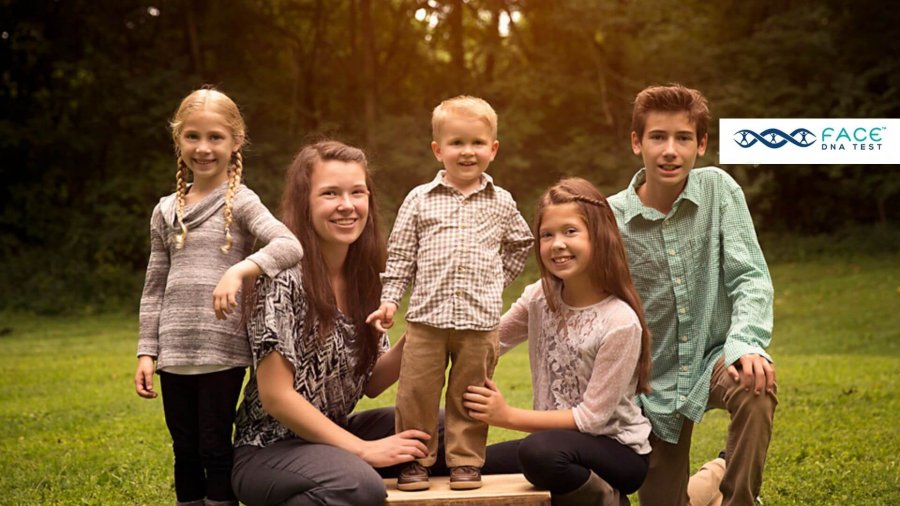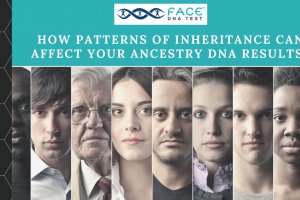Siblings with the same parents can have different Ancestry DNA results. It is not compulsory that identical ancestors will give identical ethnicity estimations. It is common that siblings have different ethnicity results. There are several factors that cause different Ancestry DNA results such as:
Basic Human Genetics
In the case of Ancestry DNA testing, human genetics play a very important role. First, chromosomes that are part of basic human genetics affect ethnicities because most genealogical DNA testing is autosomal testing. These autosomes are the first 22 pairs of chromosomes. Moreover, genes also help in determining the ethnic heritage.
Genetic Jumble
Our reproductive cells take pieces of stuff from each chromosome to make up new and unique configurations. This new DNA strand is similar to the old one but not identical. This is the main reason that siblings, unless they are twins, always have some genetic code differences. This leads to differences in their ethnicities.
Ancestry DNA Test California can help you in the estimation of your genetic ethnicity. Above are the main reasons that siblings also want to go for Ancestry DNA results to know whether they have exact same ethnicities or not. Face DNA Test professionals can help you in affordable Ancestry estimations.
Can siblings have different racial DNA?
It is indeed conceivable for complete siblings to have DNA configurations that differ significantly in race. Parents reproduce by randomly mixing and recombining their DNA, which is then passed on to the progeny. Genetic variances result from the distinct set of chromosomes that each child inherits. Siblings may inherit different combinations of paternal DNA even if they share the same parents.
Can siblings have different ethnicities?
Indeed, for several reasons, siblings might identify with distinct ethnic groups. Apart from biology, ethnicity also refers to cultural affinities. Siblings whose parents are of mixed ethnicity might embrace various cultural backgrounds. Siblings may become closer to distinct heritages due to differences in ancestry DNA percentages.
Do siblings have the same ancestry?
Siblings may have different ethnicities and particular percentages even when they have similar ancestry through their parents. Differentiations result from each kid inheriting a unique mix of chromosomes from their parents’ ancestry. Based on distinct family genetics, sibling DNA testing can identify differences in regional original roots.
Do siblings have the same ethnicity?
It is highly unlikely. Based on their upbringing, interaction with other cultures, genetic makeup, and individual preferences, siblings may identify with completely distinct ethnic groupings. DNA testing can reveal genetic differences in ancestral backgrounds and estimated ethnicity among siblings. Ethnicity is also significantly influenced by one’s self-identity.
Siblings having the exact same parents might therefore have genealogical beginnings that are identical but not the same. Face DNA Testing’s sophisticated sibling DNA testing employs a variety of reference groups to get precise estimations of ancestry. However, differences might still exist within siblings.
How can siblings have different DNA?
Recombination occurs during development when chromosomes exchange DNA segments resulting from the parents’ genomes. Siblings have different biological blueprints as a result of this DNA shuffle. Furthermore, every child acquires their own distinctive DNA due to DNA crossing over during the formation of the reproductive cells.
DNA Rearrangement
The familial mismatch results from little differences in the DNA of the sperm and eggs, not from secrets in the closet. The process by which the body produces sperm or eggs is called genetic recombination. By doing this, normal cells lose half of their chromosome count—from 46 to 23- so the sperm and egg join to produce a complete genetic bundle during conception.
Can siblings have different ancestry?
Yes, variations in estimations of ethnicity and territorial familial origins are frequently found in the findings of sibling DNA tests. There are variances in ancestry since each kid inherits a unique combination of DNA from both parents. Different ancestry percentages arise from the unpredictable genetic makeup of genomes.
Can Siblings have different DNA Ancestry?
There are often discrepancies between siblings’ findings from DNA ancestry tests regarding ethnic makeup proportions and geographic roots. Each sibling receives a unique combination of DNA sequences from both parents. Ancestry DNA test results show this genetic variability among siblings.
Will siblings have the same ancestry DNA results?
When it comes to biological siblings who have the same mother and father, even for them, the likelihood of having identical heritage DNA test results is relatively low. Spontaneous genetic shuffles result in a unique mix of parental DNA each child receives. Sibling differences in ancestral origin result from these distinct DNA successions.
Ancestry DNA siblings:
Siblings with distinct ancestries: Based on their regional ancestry ratios and estimated ethnicities, full siblings taking the AncestryDNA test will likely have varying outcomes. A child’s DNA is rearranged differently in every reproduction cycle before inheritance, which causes variations.
Why can siblings have different ancestry results?
Due to the haphazard arrangement of chromosomes each kid inherits, siblings acquire distinct mixes of their parents’ DNA. Recombination of genomes and crossover among siblings throughout the process of meiosis provides genetic variation that distinguishes the DNA compositions of different ancestries.
How do siblings have different DNA?
The genetic rearrangement that occurs once parents’ reproductive cells are generated accounts for the differences in the DNA of siblings. Mothers’ and fathers’ chromosomes switch out genetic markers before being handed to their children. This process of DNA rearrangement gives every baby a unique genetic identity.
Can siblings have different ethnicity percentages?
Yes, findings from sibling DNA tests can indicate significant variations in the percentages of ancestry and cultural origin. Variations result from each kid receiving a different mixture of parental DNA depending on random biological transmission tendencies.
Will my ancestry be the same as my siblings?
It is quite improbable that the results of your ancestral DNA would exactly match those of your siblings. At the same time, there may be specific shared characteristics; spontaneous inheritance results in a unique combination of your parent’s DNA. This results in natural differences in genetic compositions among siblings.
Can race DNA be different in siblings?
Indeed, given that each kid receives a unique combination of their parent’s DNA, siblings might have completely distinct racial or ethnic DNA histories. During development, DNA recombination produces a variety of chromosomes that differ between children.
Choose Clarity with Our DNA Test.
Get Accurate Answers With our Test!.
-
- Accurate
- Quick Result
- Private and Secure
- Affordable

Conclusion
The random nature of DNA inheritance can explain ancestor discrepancies observed between siblings. The transmission of genes is unique even when sibling DNA is identical due to unique recombination during reproduction. Such ancestral differences are detectable by inexpensive sibling DNA testing. Thus, by reviewing our in-depth DNA research, you can comprehend the genetically identified relationships that demonstrate a typical mother or father. For assistance in understanding the outcomes of your reasonably priced sibling DNA test and figuring out what the findings legally imply, contact Face DNA Test. Contact us regarding sibling DNA testing near me and solutions to familial history inquiries.







Leave a Reply
Your email is safe with us.
You must be logged in to post a comment.